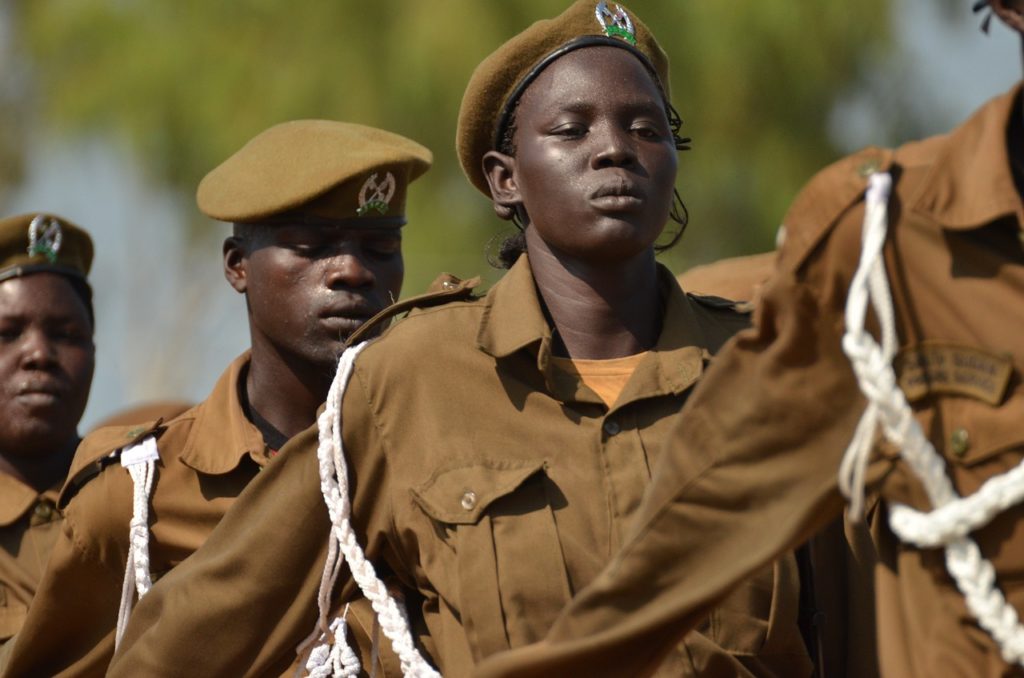Mobile Healthcare: Enhancing Accessibility in Conflict-Ridden South Sudan
 By Rosie Jervase, Key Correspondent for the Irish Global Health Network
By Rosie Jervase, Key Correspondent for the Irish Global Health Network
From 2013 onwards, the people of South Sudan have been strongly affected by an ongoing civil war. Persistent disputes between the government and opposing forces, tribal conflicts and failed peace agreements continue to drive this protracted conflict. The war has led to the internal displacement of the population and their concentration in conflict-free zones. This displacement has resulted in a gap in healthcare accessibility in South Sudan – a key topic addressed at the 2019 Global Health Exchange Conference held at Dublin City University.
Michelle O’Dea from Concern Worldwide revealed that, “approximately 7.2 million people in South Sudan need humanitarian assistance,” out of the total population of around 12.5 million. This includes 597,000 women and 860,000 children that are malnourished. With many of these vulnerable individuals located in hard-to-reach areas of the country, there is a pressing need to improve their access to healthcare services, otherwise, the civil war will continue to exacerbate this health disparity.
To bridge this divide, Ms. O’Dea shared insights from Concern Worldwide’s current Mobile Health Service project. This Irish Aid funded project focuses on mobile health service delivery in remote locations of the country. These locations are Aweil North and Aweil West – two counties located in the state of Northern Bahr el Ghazal. Both counties have low numbers of healthcare professionals. For instance, only one doctor serves a total population of 311,652 in Aweil North and another serves 475,735 in Aweil West. Consequently, children continue to suffer from the region’s common illnesses, such as malaria, respiratory tract infections and diarrhoea. These diseases have contributed to a high morbidity rate of 41.2 per cent in the Northern Bahr el Ghazal state.
To tackle the poor health situation in Aweil North and West, Ms. O’Dea noted that Concern Worldwide’s Mobile Health Service project is utilising, “a preventive and curative approach to healthcare accessibility”. This involves a mobile health team of five clinical officers and two midwives who travel to communities within the two counties. Healthcare services, such as vaccination and antenatal care, are delivered. In addition, referral patients are physically transported to nearby health facilities. However, the surge in fighting and high insecurity in South Sudan remains a major challenge for the operations of the project. Additionally, the small team is unable to support every individual patient, and lack of basic infrastructure makes transportation of referral patients to nearby health facilities challenging.
Despite these difficulties, the Mobile Health Service project has made significant progress. Between January and July 2019, the team provided out-patient consults to approximately 19,733 individuals (approximately 55.5 per cent female and 44.5 per cent male). A further 1,768 mothers received antenatal care within the same timeframe. The team also contributed to the reduction of global acute malnutrition from 17.1 per cent in 2017 to 12.7 per cent in 2019.
Building on such achievements, Ms. O’Dea stated that Concern Worldwide is committed to continuing to, “advocate and promote quality health service provision,” for those in remote areas of South Sudan. Scaling up the Mobile Health Service project in terms of the number of vehicles and healthcare professionals will be vital for its future progress.
Creating healthcare access points for vulnerable individuals is crucial, particularly in areas where conflict has undermined normal health system functions. Through expansion of the Mobile Health Service in South Sudan, and projects like it around the world, displaced and under-served populations may finally receive the quality care and treatment they rightfully deserve.
10 October 2019
CATEGORIES
- Restore Humanity Campaign
- Equity in Action Blog
- Training Programmes
- Sponsorship
- Vaccine Equity
- Get Global – Global Health Talks
- Student Outreach Team
- Get Global Young Professionals Talk Global Health
- Global Health Matters – Live Event Series
- Global Health Matters – IGHN Live Event Series
- An initiative of Irish Global Health Network
- ESTHER Ireland and ESTHER Alliance for Global Health Partnerships
- Global Health Matters – Webinar Series
- ESTHER
- IGHN Conferences
- Global Health Conference 2020
- Women in Global Health – Ireland Chapter
- ESTHER Partnerships
- Weekly Webinar Series
- 4th Global Forum on HRH
- Access to Medicines
- Archive Page Weekly COVID Webinars
- Clean Cooking 2019
- Climate Change and Health Conference 2017
- Conference Abstracts
- Conference Materials
- Covid FAQ
- COVID Funding Opportunities
- COVID-19
- COVID-19: Gender Resources
- Dashboard and online resources
- Education
- ESTHER Alliance
- Events
- Events & News
- Funding covid
- Global Health Exchange 2018
- Global Health Exchange 2019
- Global Health symposium 2019
- Health Workforce/HRH
- Homepage Featured
- Homepage recent posts
- IFGH 2011-2012 Conference and Events
- IFGH 2014 Conference
- IFGH Multimedia
- Irish AIDS Day 2017
- Irish News and Feeds
- Key Correspondent Articles
- Key Correspondent News
- Maternal Health
- Multimedia
- News
- News & Events
- Newsletter
- Opportunity
- Our LMIC's Resources for COVID19
- Partner Country News and Feeds
- Past Events
- Policy
- Presentations
- Recurring events
- Reports & Publications
- Research
- Resources
- Student Outreach Group
- Students Corner
- TEDTalks
- TRAINING COURSES FOR HEALTH CARE PROFESSIONALS
- Uncategorized
- Upcoming Events
RECENT POSTS

Impact testimonies- Lombani

Impact Testimony – Shadrick

Power, Inequality, Decolonisation – and Living My Recovery By Bronwyn April

Global Health Without Borders: Reflections on the Power of Diverse Voices

IGHNxEU – Empowering Women for a Healthier Europe


 By Rosie Jervase, Key Correspondent for the Irish Global Health Network
By Rosie Jervase, Key Correspondent for the Irish Global Health Network